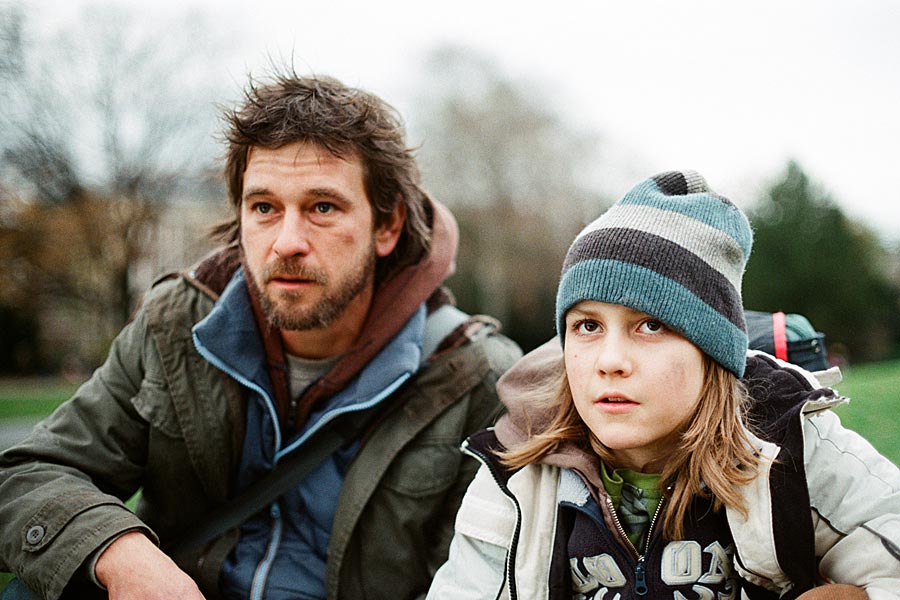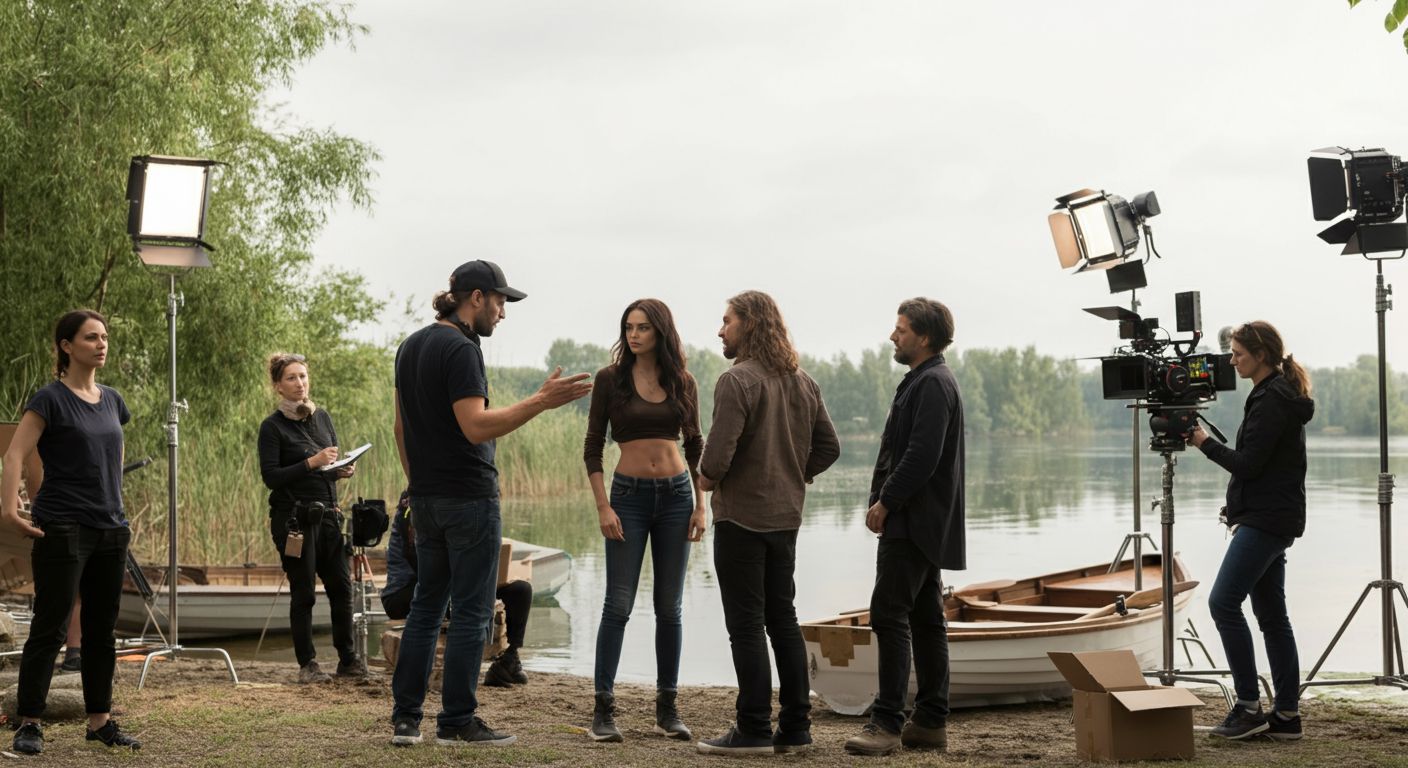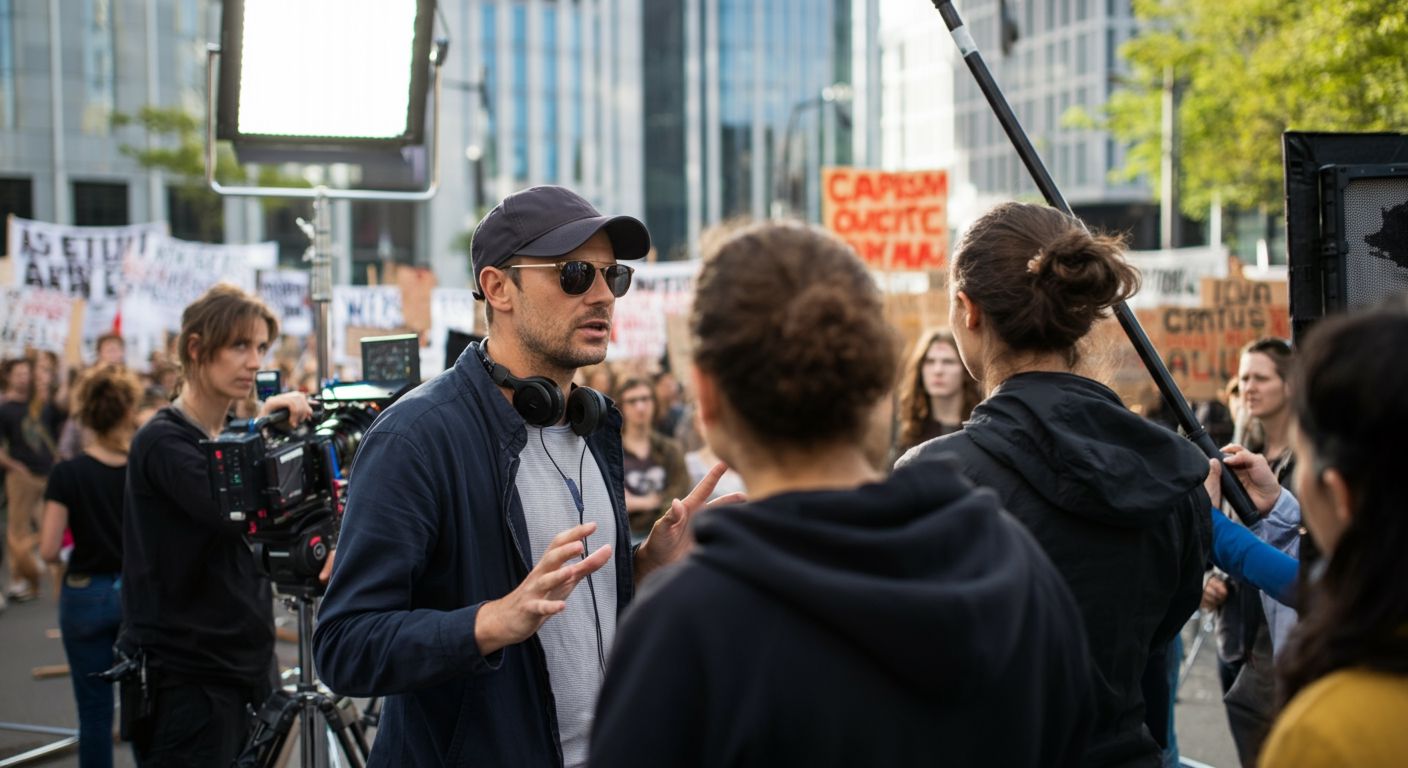hans weingartner
Artistic Style and Themes

Social Commentary:
Weingartner often explores themes of social justice, activism, and the complexities of human relationships, prompting viewers to reflect on societal issues.
Character-Driven Narratives:
His films typically focus on well-developed characters, delving into their motivations, struggles, and personal growth, which allows for a deeper emotional connection with the audience.
Blending Genres:
He skillfully blends elements of drama and comedy, creating a balance that makes serious topics more accessible while still provoking thought.
Realism:
Weingartner employs a realistic approach in his storytelling, often using naturalistic dialogue and settings to enhance authenticity.
Youthful Perspective:
Many of his films center around young protagonists, capturing their idealism, rebellion, and search for identity in a rapidly changing world.
Visual Aesthetics:
He pays attention to visual composition and cinematography, utilizing striking imagery to complement the narrative and evoke emotions.
Philosophical Undertones:
His works often contain philosophical questions and moral dilemmas, encouraging viewers to engage in critical thinking about the choices characters make.
Overall, Weingartner’s films are characterized by a thoughtful exploration of contemporary issues, a focus on character development, and a blend of humor and seriousness that resonates with a wide audience.
Themes

Hans Weingartner behandelt in seinen Werken mehrere wiederkehrende Themen:
1. Gesellschaftskritik
– Kapitalismuskritik und soziale Ungerechtigkeit („Die fetten Jahre sind vorbei“)
– Konsumkritik und Materialismus
– Kritik am Bildungssystem und gesellschaftlichen Leistungsdruck
2. Psychische Gesundheit
– Schizophrenie und psychische Erkrankungen („Das weiße Rauschen“)
– Isolation und Entfremdung in der modernen Gesellschaft
– Auswirkungen von Stress und Leistungsdruck auf die mentale Gesundheit
3. Aussteigertum und Alternative Lebensmodelle
– Ausstieg aus konventionellen Lebenswegen
– Alternative Lebensformen und Gemeinschaften
– Selbstfindung abseits gesellschaftlicher Normen („303“)
4. Jugend und Coming-of-Age
– Identitätsfindung junger Menschen
– Rebellion gegen etablierte Strukturen
– Generationenkonflikte
5. Politischer Aktivismus
– Formen des Widerstands
– Politisches Engagement junger Menschen
– Utopische Gesellschaftsentwürfe
6. Beziehungen und Zwischenmenschliches
– Authentische Begegnungen versus oberflächliche Kontakte
– Liebe und Freundschaft in der modernen Welt
– Kommunikation und Verbindung zwischen Menschen
7. Digitalisierung und Technologiekritik
– Einfluss der Digitalisierung auf zwischenmenschliche Beziehungen
– Kritik an der Überwachungsgesellschaft
– Entfremdung durch Technologie
8. Natur und Umwelt
– Naturverbundenheit als Gegenpol zur urbanen Entfremdung
– Umweltschutz und Nachhaltigkeit
– Rückbesinnung auf natürliche Lebensweisen
Charakteristisch für Weingartners Werk ist:
– Die Verbindung von persönlichen Geschichten mit gesellschaftspolitischen Themen
– Ein authentischer, oft dokumentarischer Stil
– Die Fokussierung auf junge Protagonisten, die sich mit gesellschaftlichen Strukturen auseinandersetzen
– Eine kritische, aber nicht hoffnungslose Perspektive auf gesellschaftliche Entwicklungen
Seine Filme zeichnen sich durch eine tiefgründige Auseinandersetzung mit den Themen aus, wobei er oft verschiedene Perspektiven beleuchtet und keine einfachen Antworten liefert, sondern zum Nachdenken anregt.
Hans Weingartner addresses several recurring main themes in his works:
- Social Criticism
- Criticism of capitalism and social injustice („The Edukators“)
- Criticism of consumerism and materialism
- Criticism of the education system and societal pressure to perform
- Mental Health
- Schizophrenia and mental illnesses („The White Sound“)
- Isolation and alienation in modern society
- Effects of stress and performance pressure on mental health
- Escapism and Alternative Lifestyles
- Departure from conventional life paths
- Alternative ways of living and communities
- Self-discovery outside societal norms („303“)
- Youth and Coming-of-Age
- Identity formation of young people
- Rebellion against established structures
- Generational conflicts
- Political Activism
- Forms of resistance
- Political engagement of young people
- Utopian visions of society
- Relationships and Interpersonal Connections
- Authentic encounters versus superficial interactions
- Love and friendship in the modern world
- Communication and connection between people
- Digitalization and Technology Criticism
- Influence of digitalization on interpersonal relationships
- Criticism of the surveillance society
- Alienation through technology
- Nature and Environment
- Connection to nature as a counterbalance to urban alienation
- Environmental protection and sustainability
- Rediscovery of natural ways of living
Characteristic of Weingartner’s work is:
- The connection of personal stories with socio-political themes
- An authentic, often documentary-like style
- A focus on young protagonists who confront societal structures
- A critical yet not hopeless perspective on social developments
His films are characterized by a profound engagement with these themes, often exploring different perspectives and avoiding simple answers, instead encouraging reflection.
